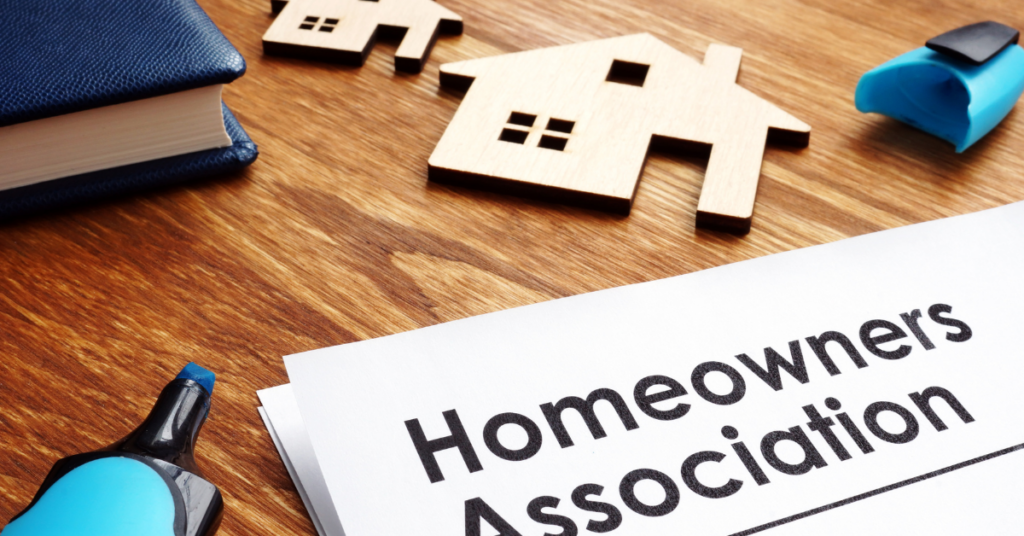
Dear Claire: What Does the Homeowner’s Association Do?
Understanding Homeowner’s Associations: Size, Rules, and More
A homeowner’s association (HOA) is an organization that is created to maintain a clear and concise brand of a subdivision or a condominium. You can have a homeowner’s association on just a regular street that you might not even know in Portland with a bunch of houses, or you can have it in a freestanding building that has multiple units in it, or you can have it with just townhouses.
Say you have two townhouses side-by-side, and there are only two townhouses. You can have a homeowner’s association there as well. HOAs can be as small as two different owners, or I have seen them as big as a thousand owners. It really can vary greatly in size and scope. Because you can have this variation in size and scope, you can have a huge variety in how it’s managed and how actively it’s managed and all that fun stuff.
Specifically, does it include scenarios where there are just two properties? Even if it’s you and your neighbor in the townhouses that are side by side and attached, technically you have a board of directors. This probably happens to be just the two of you.
We can also talk about a condominium association where they have formalized board members and define what their roles are. Typically, for a board with a big condominium association, there is going to be a president, treasurer, and secretary or someone to take meeting notes. Often, they’re going to have a very codified schedule of what they need every month and every two first Tuesdays of every month. That’s how really well-run associations go. But again, it could just be you and your neighbor, and you might meet and talk about your rules and regulations and what you like and don’t like about living with you.
Some associations hire an outside third party to help them manage everything because as you can imagine, a subdivision that just has a homeowner’s association and monitors people for following the rules is very different than a condominium homeowner’s association that has to collect dues from everyone, pay the water bill, and pay the sewer bill. That’s going to be next level as far as homeowner’s associations go and so typically, it’s much more work, you know, making sure everyone’s paying their dues and getting ahold of people that aren’t to find out what’s going on. It’s going to take a lot more work, and you can hire someone to take some of it on. Do you care about all those details once you buy a property and if this is the case, does it matter whether you ever show up to a meeting or not?
It doesn’t matter if you’re a member or not, but as a member, you get to vote. At Laurelhurst, for example, every owner of any property in that subdivision has voting rights. In a big condominium complex, one person may pay significantly more in homeowner’s association dues because it is typically based on square footage. That person can have more votes than the person who has less square footage in the same condominium association. It’s important for you to know because if you’re buying into an HOA, you should know how much of a vote you get on the board and what that means. I can go into this more one on one if you have questions about it as it’s complicated.
Homeowner’s associations have agreed to set rules that you’re going to have to follow, which can be pretty dramatic. For example, with a bunch of houses in a subdivision like Laurelhurst, they can enforce whether or not you have mowed your lawn. They can tell you what color you can paint your house. They can tell you how many cars you can park in your driveway and how many cars you can park on the street in front of your house. In a condominium association where there’s a big building where everyone’s moved and have access to the front door, they can tell you what kind of pets you can have and what kind of pets you can’t have. I’ve even seen HOA rules around Portland with single family houses. I’ve seen them say, ”Hey, you can’t have any chickens or goats or any domesticated animals besides a cat and a dog.”
I point this out to you because it’s super important. If you think you’re not in a homeowner’s association, you better make sure you check the title report and see because sometimes there are homeowner’s associations that you might not know about that have regulations about what you can and can’t do with your property. Also, homeowner’s associations cannot discriminate based on all the protected classes. In some situations, though, you do have a 55 and older community that specifically means you cannot have people younger than that living in the property for any length of time.
There’s some big rules that you definitely want to know about if you’re buying into an HOA. What kind of enforcement does the HOA have at their disposal? Can they fine you and can they put a lien on your property if you don’t comply? Say I’ve parked five cars in my driveway and my neighbors complain to the homeowner’s association. If I don’t fall in line and they put a lien on my property, they can eventually foreclose on my property if they’ve accumulated enough lien. So, did they actually have a decent amount of power to enforce those rules? And why is that important? As of 2017, about one-in-five properties were subject to a homeowner’s association.
As always, I’m here to answer any questions you might have so feel free to reach out to me. Also, remember to subscribe to our Paris Group Realty LLC, YouTube channel. I would love to hear your comments and questions. Talk to you soon.
Have more questions or want professional advice on buying or selling a home?
Contact us at [email protected] or (503) 926-5213. We’re here to address all your real estate needs!


